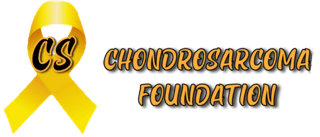Call for Action: Join the Chondrosarcoma Patient Registry before the first full analysis set for November 30.
Chondrosarcoma Patient Registry
https://chondrosarcoma.iamrare.org
On November 30 the Chondrosarcoma will conduct the first full statistical analysis of the Chondrosarcoma Patient Registry. The analysis will focus on detailed patient profiling. In addition, patient characteristics between diagnosed/determined chondrosarcoma sub types will be compared and statistically evaluated. The main study outcomes will aim to thoroughly describe the profile of chondrosarcoma patients and treatment exposure. Additionally, chondrosarcoma characteristics will be analyzed including diagnosis date, type, symptomatology, diagnostics, misdiagnosis, etc.
Your participation is essential.
We need you to share your journey and help progress research in chondrosarcoma. The Chondrosarcoma Patient Registry creates a platform for patients around the world to strengthen their voices and share information about this rare bone cancer. This global resource will provide data for researchers to use to advance drug development and treatment options and help improve patient care. Our goal is to enroll 300 participants in the registry, and we are making progress to reach that goal. So far, 205 are enrolled, with 120 completing the surveys. Your effort to complete the questionnaires will help make a huge difference. Entering your data is easy. Just log in to your account at https://chondrosarcoma.iamrare.org and click the Take Survey button for each survey under the Chondrosarcoma Patient Registry study. If you have any questions or need assistance in completing the surveys, please contact Jeffrey Kramer, the Principal Investigator at info@csfshayna.org
Some Early Preliminary Results
In the short time we have had the registry active (since March 1), we are learning more than we have known and need to learn so much more. For example, we know that we have a lot of work to do to improve the diagnostic protocol. It is becoming very clear that genomic testing needs to become part of the diagnostic protocol, and yet so far, only 22% of the participants in the registry report having that test. Another statistic we are tracking involves obtaining a full diagnosis. Out of 108 responses, only 43% report knowing their specific sub-type and grade of chondrosarcoma. One possible reason may be that pathologists who provide the diagnosis for chondrosarcoma do not specialize in bone or soft tissue cancers and while they can detect chondrosarcoma, they are unable to provide the sub-type or grade.
As we continue to analyze, evaluate, track, and learn, we will share these results. and will keep you posted on the progress we are making with this first global natural history study with periodic reports. With your help we look forward to the possibility of new insights, improved research, clinical studies, and medical treatment and hopefully one day soon, a cure.
